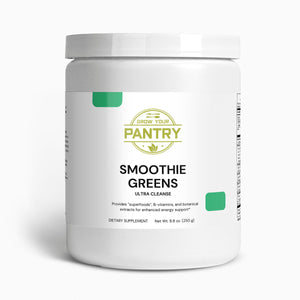Can Dogs Eat Sauerkraut? The Owner's Guide
Can Dogs Eat Sauerkraut?
Yes, dogs can eat sauerkraut. It's encouraged to feed your dog fermented cabbages as they are a rich source of probiotics and essential nutrients such as iron, vitamin K, vitamin C, and dietary fiber.
What Is Sauerkraut?
Sauerkraut refers to fermented cabbages that are stored under a controlled environment to allow yeast and bacteria to ferment the sugars in the vegetables naturally. The bacteria and yeast establish an acidic environment that prevents rotting and infestation of harmful cultures. The result is well-preserved cabbages enriched with probiotics.
Types Of Sauerkraut And Can Dogs Eat Them?
1. Homemade
Can dogs eat: Yes
Raw homemade sauerkraut is the most recommended variety for your dogs as it doesn't contain any additives or preservatives, just natural fermentation goodness. You can go the extra step and use organically grown cabbages; this ensures that there's zero possibility of your dog consuming any unwanted chemicals.
2. Store-Bought/ Brands
Can dogs eat: Yes
Dogs can eat store-bought sauerkraut; however, you should be on the lookout for brands with the least sodium amounts. Ensure that your dog has access to plenty of water as sodium can increase water consumption due to thirst and a gradual blood pressure increase.
3. Canned
Can dogs eat: Yes
Most store-bought sauerkraut is preserved by canning, which keeps the fermented cabbages safe for long-term consumption. Canned varieties contain a higher amount of sodium, so look for the brands with the least amounts.
4. Cooked Sauerkraut
Can dogs eat: Yes
Dogs can eat cooked sauerkraut; however, the smell can be quite overpowering. Ensure that your dogs have access to plenty of water after consuming cooked sauerkraut to avoid tummy and gas problems. When introducing your dog to cooked sauerkraut for the first time, its recommended to start with a small amount and monitor how they handle it.
Effects Of Sauerkraut By Ingredient
1. Green Cabbages
Green cabbages are full of nutritional goodness and also provide the much-required dietary fiber that your furry friends need. Supplementing your dog's regular meals with fermented cabbage will boost their immune system and support healthy gut bio. It's important to note that cabbages can cause some stomach upsets and increased gas, so be sure to introduce your dog to cabbages starting with small amounts before gradually scaling up.
2. Kosher Salt
Kosher salt is different from regular salt as it contains additional minerals besides sodium chloride; these include trace amounts of potassium, zinc, and iron. Kosher salt does not contain anti-caking agents such as iodine. It's important to note that dogs are sensitive to sodium levels, as they usually affect the electrolyte balance. Ensure that your dogs have access to plenty of water to rehydrate and restore electrolyte balance after consuming salty sauerkraut.
3. Optional Flavoring Ingredients
Some sauerkraut recipes do incorporate additional ingredients such as fruits, e.g., carrots. Pears and apples. Ensure that your dog is not allergic to any of the other components in the sauerkraut.
Is Sauerkraut Good For Dogs?
Sauerkraut is generally considered suitable for your dogs as it contains essential nutrients and dietary fiber. Incorporating sauerkraut to your dog's daily diet will significantly improve its overall health.
Probiotics
Sauerkraut contains billions of live yeast and bacteria probiotics which flourish during the fermentation period. Probiotics go a long way in improving the overall balance of good bacteria in the digestive tract, thus improving the overall health of the digestive system.
Health Benefits For Dogs
Full Of Nutritional Goodness - Fermented cabbages are rich in dietary fiber, protein, iron, manganese, sodium, folate, copper, potassium, vitamin B6, K1, and C. During the fermentation process the culture feeds on the sugars present in the cabbages which serve to reduce the total amount of calories in the final product.
Improving Digestion - Sauerkraut has an overall positive influence on your dog's digestion thanks to its substantial dietary fiber content and billions of probiotics. Avoid feeding your dog pasteurized sauerkraut as it does not contain live probiotics due to the heat treatment.
Boosting The Immune System - The billions of live probiotics in sauerkraut will improve your dog's digestive tract, which prevents unwanted substances from leaking through the gut lining into the body.
Homemade Sauerkraut Recipe
This recipe is inspired by thekitchn.com
Equipment Needed
-
Large mixing bowl
-
2-quart mason jar preferably wide-mouth variety
-
Stone or marble weights
-
Cheesecloth and rubber band
Ingredients Required
-
Medium head green cabbage
-
1 tablespoon kosher salt
-
1 tablespoon caraway seeds
Instructions
1. Clean the equipment required and rinse everything with filtered water including the ingredients.
2. Slice and cut the cabbage into quarters and trim the core out. The quarters should then be sliced into thin ribbons and discard any limp or wilted leaves.
3. In a large bowl, mix the shredded cabbage and salt. Start combing in the salt by squeezing and firmly massaging the cabbage with your hands until the leaves become watery and limp.
4. Mix in the caraway seeds and start packing the cabbage into the mason jar. Tamp down the cabbage into the fermentation crock with your fist and pour in any liquid that was leftover from the mixing process.
5. Ensure that the cabbage is firmly packed in such a way that no cabbage leaves are floating above the liquid level. Place a sizable outer cabbage leaf on the surface to act as a cover.
6. Slip in the smaller jelly jar and place the stone weights in it.
7. Cover the mason jar with a cheesecloth and use a rubber band to hold it in place.
8. Transfer the mason jar into the fermentation area away from direct sunlight and within room temperature. Allow the sauerkraut to ferment for ten days, after which it can be moved into the fridge for storage for up to 2 months.
Sauerkraut For Dogs With Blockages
You can use sauerkraut to help your dog pass any digestive obstruction naturally. The high fiber content in sauerkraut that's indigestible wraps around the obstruction so that the digestive system can pass the obstruction smoothly.
How To Feed Your Dog Sauerkraut?
Feed your dog 1 to 3 teaspoons of sauerkraut for every 20 pounds of its body weight.
Other Fermented Ideas For Dogs
1. Apple cider vinegar
2. Milk kefir
3. Pickled vegetables
4. Kimchi
5. Tempeh
6. Yogurt






